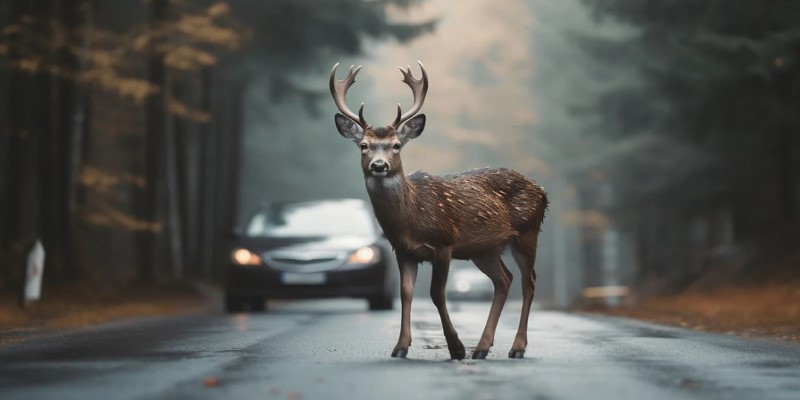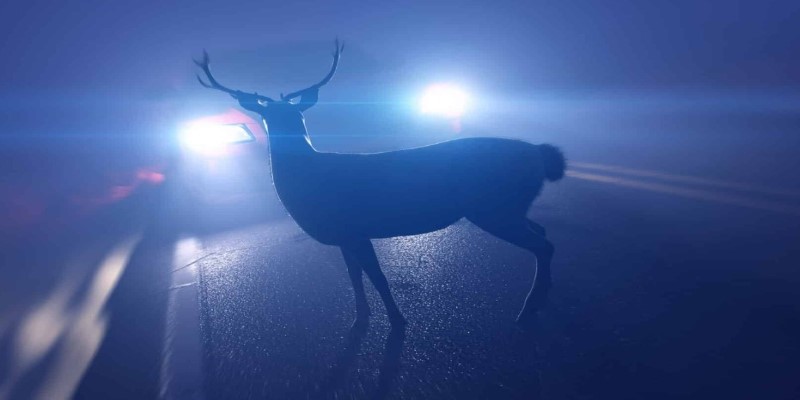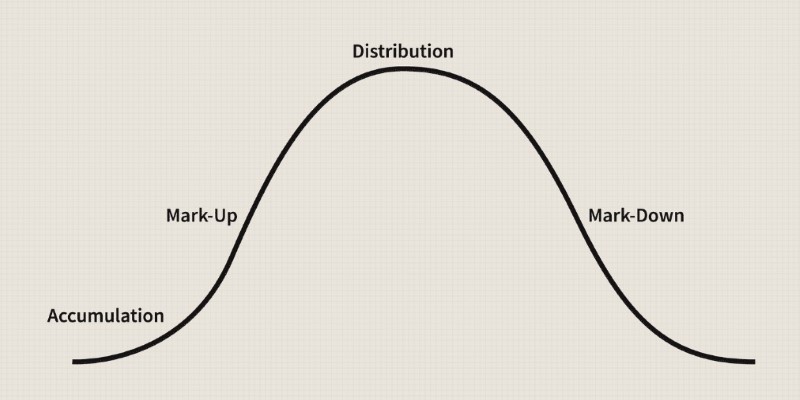When driving on rural roads or during certain times of the year, theres always a concern about encountering deer. Accidents involving deer are surprisingly common, especially in regions where these animals are abundant. If you've ever wondered, "Does car insurance cover hitting a deer?" youre not alone.

Understanding your insurance policy and knowing what to do after such an incident is essential. In this article, well dive into what car insurance covers, specifically in relation to deer accidents, and how to reduce the chances of this happening in the first place.
Car insurance is a contract between you and your insurance provider that offers financial protection in the event of accidents, theft, or damage. The types of coverage included in your policy define the specific scenarios where insurance applies, such as collisions with other vehicles, natural disasters, or damage from animals like deer. There are several key types of coverage to be aware of:
Liability Insurance: This is the most basic form of car insurance, covering damages you cause to another person's property or any bodily injury resulting from an accident. However, liability insurance won't cover damage to your car if you hit a deer.
Collision Insurance: Collision insurance is designed to cover damages to your vehicle from accidents where you collide with another vehicle or object. Although it covers accidents like hitting a guardrail or another car, it typically does not include accidents involving animals like deer.
Comprehensive Insurance: Most people rely on comprehensive coverage when they hit a deer. This type of insurance covers damages that occur from incidents other than collisions, such as natural disasters, theft, vandalism, and, yes, hitting a deer. Comprehensive insurance is your go-to protection for wildlife-related accidents.
The short answer is yes, but it depends on the type of coverage you have. Typically, hitting a deer is covered under comprehensive insurance rather than collision insurance. Even though the incident involves a collision, insurance companies classify animal-related accidents under comprehensive coverage because they are considered "non-collision" events.

If you only have liability insurance or a basic policy without comprehensive coverage, your insurance is unlikely to cover damages caused by hitting a deer. Comprehensive insurance, however, covers not only damage to your car but also windshield cracks, fire damage, and other non-collision events.
Its important to check with your insurance provider to confirm the details of your coverage. Comprehensive insurance typically covers repair costs minus your deductible. If the cost to repair your car exceeds the vehicles value, your insurer may deem it a total loss and offer you the cars actual cash value.
If you hit a deer, filing an insurance claim is relatively straightforward, but there are specific steps you should follow to ensure your claim is processed smoothly:
Ensure Safety First: Move your car out of traffic if possible, turn on your hazard lights, and assess any injuries. If necessary, call emergency services.
Document the Scene: Take photos of the damage, the location, and, if possible, the deer. Having visual evidence strengthens your claim.
Contact Your Insurance Company: Notify your insurer as soon as possible. Provide all relevant details, including the date, time, location, and description of the incident. Your insurance company will guide you on the next steps and may arrange for an adjuster to assess the damage.
Get a Repair Estimate: Your insurer may require an estimate before approving repairs. Some companies may direct you to specific repair shops, while others allow you to choose your own.
Review Your Deductible and Coverage: Before agreeing to any repairs, consider how your deductible applies and whether the repair costs are worth filing a claim.
Remember, filing a claim for hitting a deer wont typically raise your insurance premiums as much as an at-fault accident would. Comprehensive claims usually have a smaller impact on your rates.
While insurance can cover damage from hitting a deer, its best to avoid the situation entirely. Here are some effective ways to reduce the risk of deer-related accidents:
Be Cautious During High-Risk Times: Deer are most active during dawn and dusk, especially in the fall and spring. If youre driving in areas known for deer, stay extra vigilant during these hours.
Use High Beams When Possible: High beams help illuminate the sides of the road, making it easier to spot deer before they cross your path.

Look for Deer Crossing Signs: These signs are placed in areas with high deer activity. Slow down and stay alert when you see one.
Drive Defensively: Always be prepared to brake if you see a deer. Deer often travel in groups, so if you see one, expect more to follow.
Use Your Horn: If you spot a deer, honk your horn in short bursts to scare it away from the road.
By taking these precautions, you can significantly reduce the chances of hitting a deer and keep yourself, your passengers, and your vehicle safe.
Hitting a deer can be a frightening and costly experience, but having the right car insurance coverage provides peace of mind. Comprehensive insurance typically covers damage from deer collisions, ensuring youre financially protected if such an accident occurs. Knowing what steps to take after hitting a deer, from documenting the scene to filing a claim, is crucial in getting back on the road quickly.
While insurance is there to help when the unexpected happens, practicing defensive driving and staying alert in high-risk areas are your best defenses against deer collisions. By combining awareness with adequate insurance coverage, you can navigate the roads with confidence, even during peak deer season.

By Maurice Oliver/Sep 19, 2024
By Isabella Moss/Sep 19, 2024
By Gabrielle Bennett /Sep 23, 2024

By Elva Flynn/Sep 06, 2024
By Nancy Miller/Sep 18, 2024

By Georgia Vincent/Sep 07, 2024

By Darnell Malan/Sep 16, 2024

By Triston Martin/Sep 23, 2024

By Elva Flynn/Sep 22, 2024

By Susan Kelly/Aug 25, 2024
By Mason Garvey/Sep 23, 2024

By Susan Kelly/Sep 05, 2024